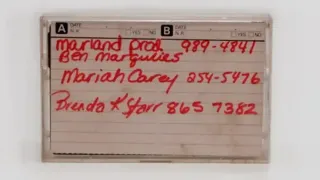September 9, 2024
TIFF Dispatch 2: The World Comes to TIFF
C.J. Prince READ TIME: 8 MIN.
Another Venice prize winner that made its way to Toronto is Brady Corbet's "The Brutalist," a three-and-a-half hour attempt at the next Great American Epic. Corbet won the prize for best director at Venice, which makes sense given how much the film wants to impress viewers with its capital D direction. Corbet took seven years to make "The Brutalist," shot it on VistaVision film, and so far has only shown it publicly on 70mm, imposing choices meant to impress audiences at their apparent lack of compromise.
Corbet directs the story of László Toth (Adrien Brody), a Hungarian architect who survives the Nazi concentration camps and flees to America on his own, leaving his wife Erzsébet (Felicity Jones) behind with the hopes of bringing her over some day. He gets his start working for a cousin (Alessandro Nivola) designing furniture until he crosses paths with wealthy industrialist Harrison Lee Van Buren (Guy Pearce) and his son Harry (Joe Alwyn). Harrison takes a liking to László and gives him the opportunity of a lifetime by offering him the chance to design a large community centre for the city of Doylestown, Pennsylvania.
László commits to the project as a massive, grand undertaking, a monument of concrete and (of course) brutalist design that he treats as his masterpiece. Corbet uses the construction as a neat allegory for the American dream, its rocky foundations, and the ways in which wealthy elites exploit it to take advantage of the less fortunate, among other ideas. And while "The Brutalist" has all the makings of an ambitious American epic like "The Godfather," including an overture and 15-minute intermission (yet another imposing choice), Corbet can never get a grasp of what he's reaching for. He's writing checks his film can't cash.
There's some value in his big, swinging attempts, at least in the first half where we see László find his way into the upper echelons of 1950s American society. Despite the lengthy runtime, "The Brutalist" moves fast, and Corbet along with cinematographer Lol Crawley create plenty of striking imagery (production designer Judy Becker also does a great job with the level of period details for a film that looks far more expensive than it cost). Adrien Brody turns in one of his strongest performances to date as the tortured László, and Guy Pearce finds a perfect balance between Harrison's grotesque selfishness and an actual human being. These earlier sections create an anticipation around where László's story will go, and at times it's easy to get swept up in the film's boldness.
But "The Brutalist" ends up somewhere problematic in its final act, with too many issues in its writing and construction to forgive. Many of the ideas and themes established in the first half become all too obvious through rushed story developments that come across as baffling given the lengthy runtime. It's a surprising lack of confidence for a film with plenty of swagger, as if the messages had to be pointed out explicitly in case someone might have missed what the film is going for. It makes for an unsatisfying conclusion made worse with an unnecessary epilogue that jumps further ahead in time with no real purpose. Given the scale of "The Brutalist" as well as its commanding approach, the most obvious comparison point would be Paul Thomas Anderson's "There Will Be Blood." The difference is that Anderson managed to live up to his lofty goals. Corbet wears auteurism like a costume, with his influences still outweighing his own distinctive vision, and yet I'll still root for him to eventually hit his target only because he's one of the few people working today willing to aim so high.






